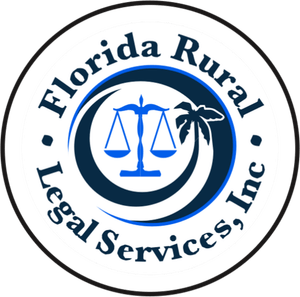If you are a low-income taxpayer who needs assistance in resolving a tax dispute with the IRS and you cannot afford representation, or if you speak English as a second language and need help understanding your taxpayer rights and responsibilities, Florida Rural Legal Services can possibly help you qualify for help from a Low Income Taxpayer Clinic (LITC) that provides free or low-cost assistance.
"LITCs are often the last resort for taxpayers who have nowhere else to turn," said Denise Sawyer, marketing and communications director for Florida Rural Legal Services. "Our team will help to represent, educate, and advocate for taxpayers who qualify for the LITC program."
FRLS can offer representation in controversial tax cases; ocnsultations about tax matters; education about taxpayer rights and responsibilities; and advocacy efforts to resolve systemic tax issues that affect low-income.
Taxpayers have the right to retain an authorized representative of their choice to represent them when they are dealing with the IRS. They also have the right to seek assistance from a Low Income Taxpayer Clinic if they cannot afford representation.
These clinics represent individuals whose income is below a certain level and who need to resolve tax problems with the IRS. LITCs can represent taxpayers in audits, appeals and tax collection disputes before the IRS and in court. In addition, LITCs can provide information about taxpayer rights and responsibilities in different languages for individuals who speak English as a second language.

How do LITCs help taxpayers?
Have you ever wondered exactly what LITCs do? Here are just a few examples of LITC’s recent successes:
- A single mother was out of work and needed surgery. She withdrew funds from her retirement account to pay bills. Unable to make ends meet, with her house in foreclosure and her car needing major repairs, she was referred her to an LITC attorney, who discovered that she had not filed tax returns from 2017 through 2019. The LITC helped her complete the past-due returns, generating refunds of over $21,000. She also received much-needed Economic Impact Payments, resulting in over $2,000 in additional funds. The taxpayer was able to pay off her outstanding debts, with enough left to buy her family a reliable car so she could get back and forth to work after recovering from surgery.
- A low-income veteran with substantial health problems who worked as a truck driver didn’t keep records of his business expenses. He owed over $100,000 in federal taxes. The taxpayer reached out to an LITC for help when the IRS threatened to seize his home. He had enough equity in his house to pay the liability, but the LITC demonstrated that the taxpayer could not rent a home for less than his low mortgage payment and successfully advocated to have the taxpayer’s liability be placed in currently-not-collectible status, allowing him to keep his home.
- A taxpayer was referred to an LITC after the IRS held 2019 tax refund of over $6,000 because she had not yet filed a 2017 tax return. The taxpayer hadn’t filed because she thought she had been misclassified as an independent contractor. The LITC attorney worked with the taxpayer to file a Form SS-8, Determination of Worker Status for Purposes of Federal Employment Taxes and Income Tax Withholding, to challenge her employment status. The LITC also helped the taxpayer file her 2017 tax return and gather proof of her financial hardship. The LITC worked with the Taxpayer Advocate Service to have only part of the taxpayer’s 2019 refund applied to the 2017 tax liability, resulting in nearly $5,000 being refunded to the taxpayer to relieve her hardship.
